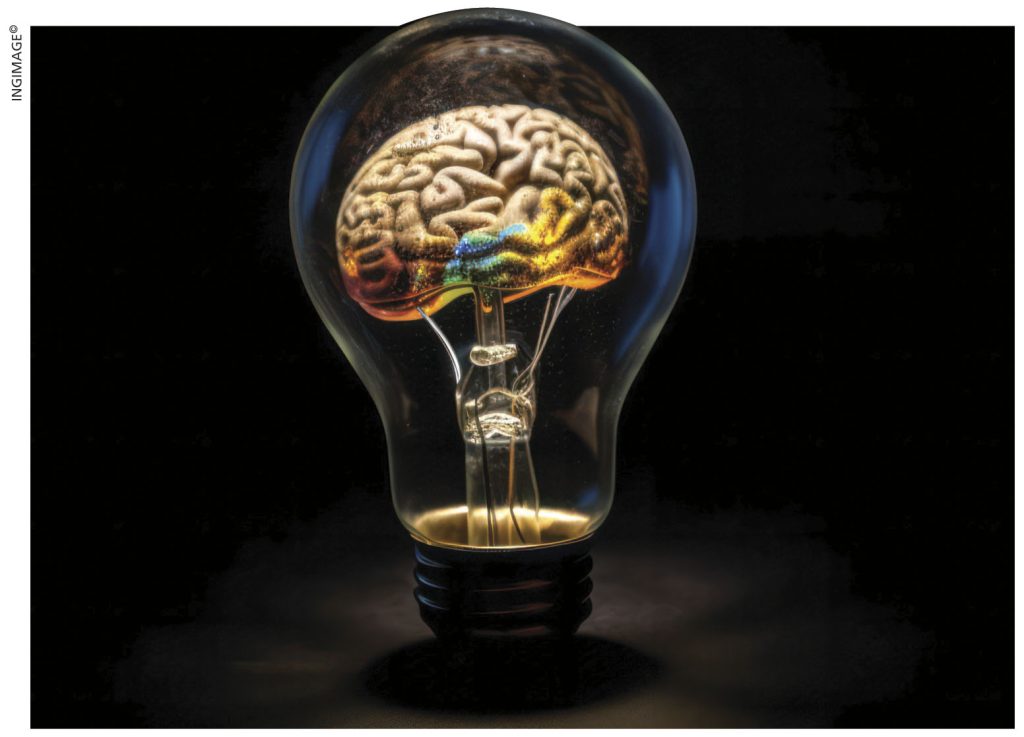THE LEARNING CURVE
When people ask why they should bother learning anything if everything’s going to be outdated, it is a valid question. This age of AI is amazing – everything from how to perfectly boil an egg to building a nuclear reactor is available online.
The new age we’re living in is very convenient, super smart and perfect to an extent.
SPOTLIGHT ON HUMAN VALUES
Ruwandi Perera believes that learning human values is key in the age of AI

Unless it’s a physical or biological endeavour, anyone can learn as long as he or she knows to ask the right questions. For instance, someone without an ounce of rhythm can compose a song with music and lyrics, and have a track recorded with vocals in less than 30 minutes.
A person who is totally ignorant about business strategies or even how a company operates can produce a marketing plan complete with objectives and measurement metrics. And someone who has never learned IT can write code to set up a website, and have it up and running in an hour.
So why should humans bother learning anything other than how to use and navigate AI to do what needs to be done? And why should we bother learning about business management, leadership, physics, architecture or any subject with a curriculum?
But before all of that, readers should focus on learning and practising human values in life.
Human values are what make us human – they create our identity and become our moral compass as we go through life, influencing our decisions in terms of what’s right and wrong.
And there are plenty of values that make us human…
In 2020, the World Economic Forum (WEF) compiled the most influential values (56 in total) on Earth in one graphic. It contained everything from loyalty, harmony, respect and love, to positive environments, service to others, freedom of speech and environmentalism.
For many years, we believed that we’d learn these values on the go – i.e. from the time we are born till the day we’re too stubborn to learn anything new.
But it doesn’t seem as if the human race has got its values right, considering all the past world wars, the current conflicts, the climate crisis, political crimes, social violence, drug abuse etc. In fact, we have definitely got lost along the way!
And today, with an inconceivable amount of power through freely accessible knowledge and information at our fingertips, the need to practise human values has become stronger than ever.
It’s values such as truth, honesty and integrity that will stop us when we feel tempted to take credit for someone else’s work – be it a marketing proposal that we’re ‘borrowing,’ an assignment we’re ‘taking notes from’ or even a melody we are using without acknowledging its creator.
Meanwhile, values such as respect and responsibility prevent us from using AI for social manipulation through the use of an artificial intelligence voice changer for fun, or the purposeful use of deepfakes to stir confusion and chaos.
And values such as kindness, empathy, community spirit and love will make us stop in our tracks, as we consider how our actions and inaction will hurt or harm others, be they humans, animals, plants or the environment.
As children, we were expected to learn good values from our families by modelling the behaviour of our parents. However, will children of today be able to model parents who aren’t practising the right values in terms of digital technology usage and so on?
Then as adolescents, we were expected to learn good values from our teachers and school communities. Yet, how would teenagers imitate adults who copy and paste content from the internet straight onto their curricula?
As working professionals, we were expected to learn best practices from our superiors. But how can employees be responsible corporate professionals if their bosses exploit intellectual resources for the sake of efficiency?
Nurseries, schools, colleges, universities and postgraduate institutions must redesign their curricula to teach human values first, since we can no longer take it for granted that we’ll learn them along the journey of life.
Perhaps corporate training programmes should prioritise inculcating values before teaching students how to streamline business processes.
The time has come to learn the fundamentals of being human in order to remain human, in the fullest sense of the word.





